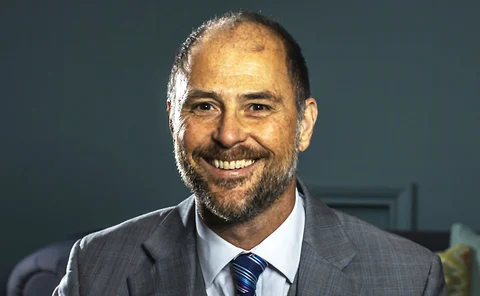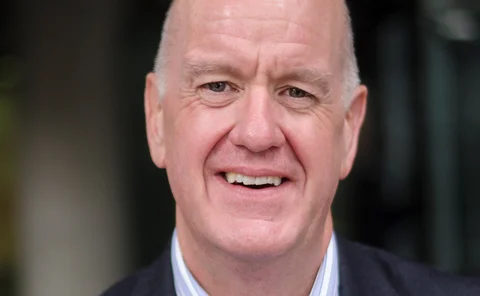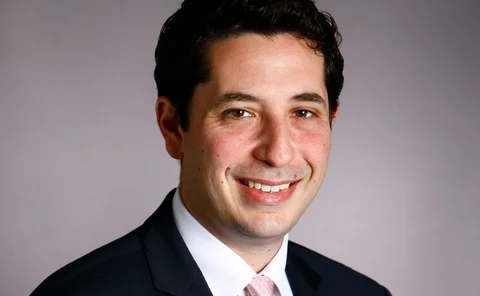Artificial intelligence (AI)
Brown & Brown sets $8bn revenue target
Speaking at the Managing General Agents’ Association conference in London, Brown & Brown president and CEO Powell Brown told the audience the broker’s ambitious revenue targets.
Post Claims Club Podcast: Shift Technology’s George Robbins
In the first of a series of interviews with key figures in the claims space, Post content director Jonathan Swift caught up with Shift Technology’s new head of UK markets George Robbins.
One-in-10 specialty insurers expect to scale AI use in 2025
Oxbow Partners has predicted that 2024 will be a year of divergence for the use of generative artificial intelligence in the specialty insurance and reinsurance markets.
Pain points in deploying AI models in insurance
Darran Simons, head of insurance EMEA at Fico, explains the ongoing challenges that are hindering deployment of artificial intelligence and delaying execution of programmes in general insurance.
Why loss adjusting is not just a science – it is an art
While technology has created new ways of carrying out inspections, accessing information and communicating, how loss adjusting has managed to remain an art rather than simply a science is explored in the latest Insurance Post Podcast.
Davies refinances £1.5bn debt facility to buy more businesses
Davies has agreed a £1.5bn refinance of its debt facility, slashing its interest bill, extending debt maturities, and securing extra credit to buy more businesses and develop artificial intelligence solutions.
Insurers should stop looking at AI as a cost-saver
Eddie Longworth, the founder of JEL Consulting who launched the Artificial Intelligence Code of Conduct earlier this year, says the insurance industry hasn’t realised the “conundrum” about using AI and the need for talent to operate it.
Digital claims: closing the loop from FNOL to settlement
Technology is transforming the ease and efficiency of the insurance claims process. But there’s still a balance to be found between light touch and human touch. Saxon East reports.
Harnessing responsible AI in the insurance industry
Trade Voice: Ann Dingemans, lawyer at Kennedys and Fleur Rochester, Kennedys partner and president of the London Forum of Insurance Lawyers, look at how insurers can take advantage of artificial intelligence in the right way.
Axa reveals AI pilots being rolled out across business
Axa has more than half of its artificial intelligence use cases already in production, according to Axa XL chief innovation, data analytics officer Ashok Krishnan.
Digital Bar Quarterly: Could AI help deliver “out of the insurance world customer experience”?
Insurance companies need to get out of the digital innovation slow lane and look beyond incremental change if they are to reap the full benefits of AI, according to Altus general insurance director Mark McDonald.
Zurich’s Jones on importance of ethical use of AI
Penny Jones, ethical governance lead for AI and analytics at Zurich, examines striking the right balance between ensuring responsible use of AI and enabling innovation.
Insurtech collaboration set to transform the claims ecosystem
The insurance claims sector is in the midst of a mini revolution as specialist insurtech providers look to work together, embrace collaboration and accelerate the adoption of a smart insurance claims ecosystem, says Jeremy Hyams, founder of Synergy Cloud.
AI at intersection of insurance and behavioural science
Mark Huxley, non-executive chairman of BareRock, explains how artificial intelligence can help human insurers avoid cognitive overload and achieve something mighty.
Leveraging AI to accelerate decarbonisation in insurance
Andy Waring, head of intermediary at Stubben Edge, examines how artificial intelligence could help insurers achieve their Net Zero goals.
NFU Mutual only feeds AI models internal data
NFU Mutual is only feeding generative artificial intelligence models internal data to avoid inaccuracy, according to chief data officer Alistair Mathie.
Why Markel’s media team are cautious about AI-exposed risks
Sam Clarke, media and entertainment underwriter at Markel, questions how underwriters can be comfortable with the intellectual property exposures of generative artificial intelligence when each jurisdiction would effectively view and handle claims…
Rise of the AI-broker
Artificial Intelligence has many real-world applications and is already helping the insurance broking community in the US spend more time connecting with, listening to, and advising customers, says Chris Kitchener, vice president of product management…
Why insurers shouldn’t wait for regulatory clarity on AI
Philip White, a lawyer at The Legal Director, explains why insurers should put in place good governance to harness the growing capabilities of artificial intelligence now rather than wait for the watchdog to set rules for the use of this technology.
Q&A: Nigel Walsh, Google Cloud
Nigel Walsh, global head of insurance at Google Cloud, explains how insurance is moving from predict to prevent, and shares why providers will fall into two buckets when it comes to artificial intelligence over the next 12 months.
Four key takeaways from Insurance Post’s AI Summit
Insurance Post organised a conference for senior-level artificial intelligence leaders from the UK’s largest insurance companies to discuss strategies for implementing AI, as well as the challenges and opportunities encountered in their transformation…
Hiscox uses AI to slash underwriting from three days to three minutes
Hiscox has shortened its lead underwriting journey for the London Market sabotage and terrorism book from three days to three minutes through the use of generative artificial intelligence.
How generative AI is everything, everywhere in insurance all at once
How insurers have been able to swiftly pilot generative artificial intelligence, prove the value of embracing this technology and roll it out across the wider business is examined by Insurance Post Editor Emma Ann Hughes.
Unlocking AI’s potential demands a fresh approach
To unlocking artificial intelligence’s potential, Oliver Wyman partner Fady Khayatt argues that, rather than think about how the industry has always worked, insurers should envision what a role and process could become.






















